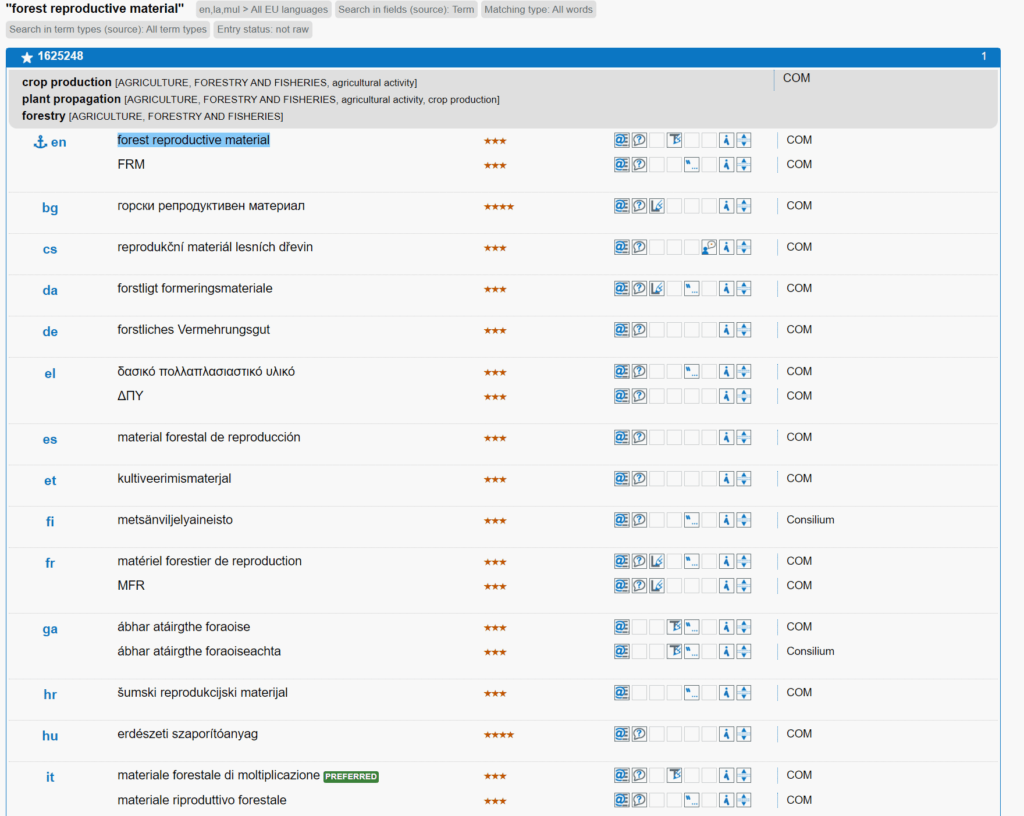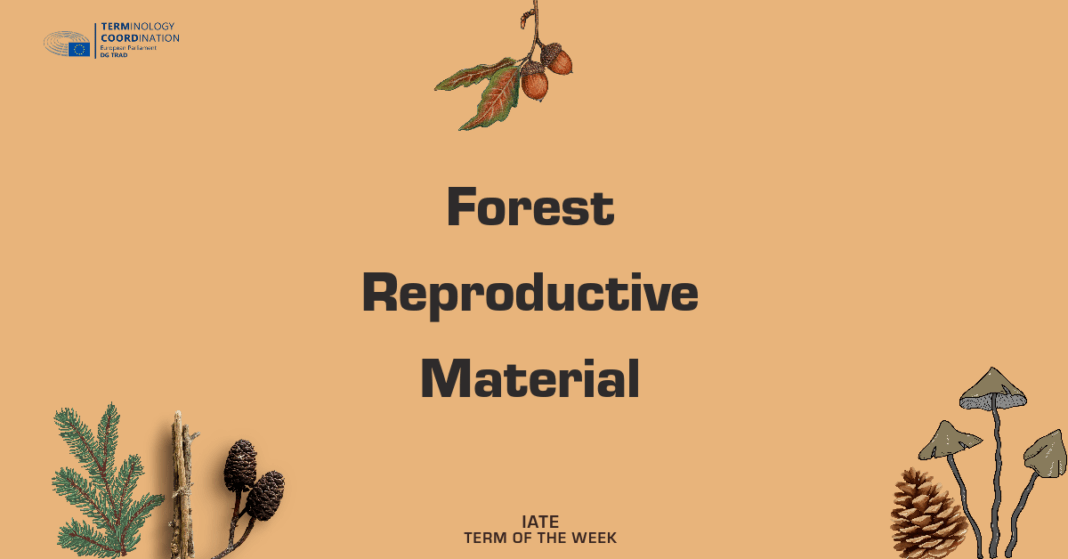Forest reproductive material (FRM) refers to the seeds, cones, cuttings, and other genetic materials collected from trees, shrubs, and woody plants. These materials are essential for the regeneration and establishment of forests. The genetic diversity within FRM is crucial for ensuring that the next generation of trees and woody plants can adapt to changing environmental conditions and continue to provide ecosystem services.

The EU Forest Strategy 2030 is a comprehensive that ‘aims to overcome the challenges faced by European forests, such as pressures from human activity and natural processes as well as the consequences of climate change.’ FRM is directly related to this strategy in several ways. More specifically, ‘the strategy includes a host of actions for strengthening forest protection and restoration, enhancing sustainable forest management and improving the monitoring and effective planning on forests in the EU.’
The EU Forest Strategy emphasizes sustainable forest management as a core objective. Properly managed FRM ensures that forests can be regenerated in a way that maintains genetic diversity, adaptability, and resilience, aligning with the principles of sustainability.
Moreover, high-quality FRM is crucial for these efforts, as it enables the establishment of new forests or the regeneration of existing ones, ensuring that forests can be preserved and restored effectively.
Maintaining genetic diversity in forests is also essential for preserving biodiversity and providing ecosystem services. FRM contributes to this by helping ensure that the genetic makeup of future forest populations is capable of supporting a wide range of plant and animal species, as well as ecosystem functions.
Furthemore, FRM that is suited to future climate conditions is vital for ensuring that forests can cope with the impacts of climate change.
FRM also plays a role on a socioeconomic level: Forests play a critical role in rural development and the bioeconomy. High-quality FRM supports the production of wood and non-wood forest products, contributing to the socioeconomic resilience of local communities and the broader European economy.
In conclusion, the EU Forest Strategy 2030 underpins the strategy’s goals of sustainable forest management, restoration, biodiversity preservation, climate change adaptation, and socioeconomic resilience. Proper management and conservation of FRM are essential for achieving the objectives outlined in the strategy and ensuring the long-term health and sustainability of European forests.
Bibliography
European Commission. (2023). Future EU Rules on Plant and Forest Reproductive Material. Retrieved from European Commission Food Safety – Plants:https://food.ec.europa.eu/plants/plant-reproductive-material/legislation/future-eu-rules-plant-and-forest-reproductive-material_en
European Parliament. (2023). New EU Forest Strategy for 2030. Retrieved from the European Parliament Legislative Train: https://www.europarl.europa.eu/legislative-train/theme-a-european-green-deal/file-new-eu-forest-strategy
Food and Agriculture Organization of the United Nations. (2030). Forest Reproductive Material. Retrieved from FAO Sustainable Forest Management Toolbox: https://www.fao.org/sustainable-forest-management/toolbox/modules/forest-reproductive-material/basic-knowledge/en/
Written by Marina Scelta
Born in Palermo (Italy), passionate about learning languages since a very young age, she studied Interpreting and Translation for English and French in her hometown, then moved to London for a Master’s Degree in the same domain (University of Westminster), eager to earn some first-hand experience in an international environment. In 2020, she decided to move back to Italy, where she applied for her second Master’s Degree in Foreign Languages for International Communication (Università degli Studi di Torino). In 2021, she had the opportunity to move to Strasbourg as an Erasmus student for almost one year, at the end of which she made of that city her new home. Currently in the process of writing her master’s thesis, in her free time Marina enjoys travelling, singing, walking in the nature, solving crosswords puzzles, and mostly looking around for vegan food.

